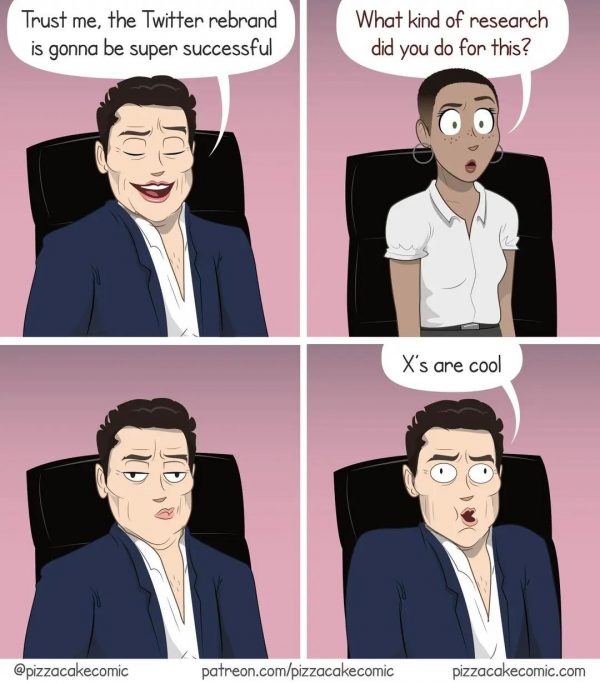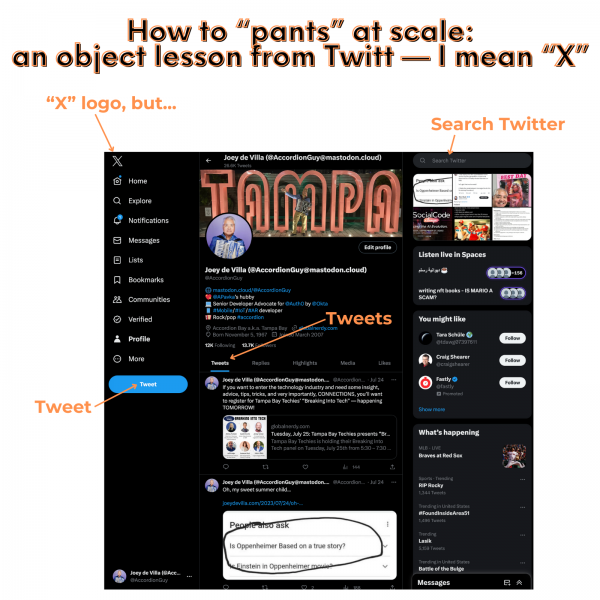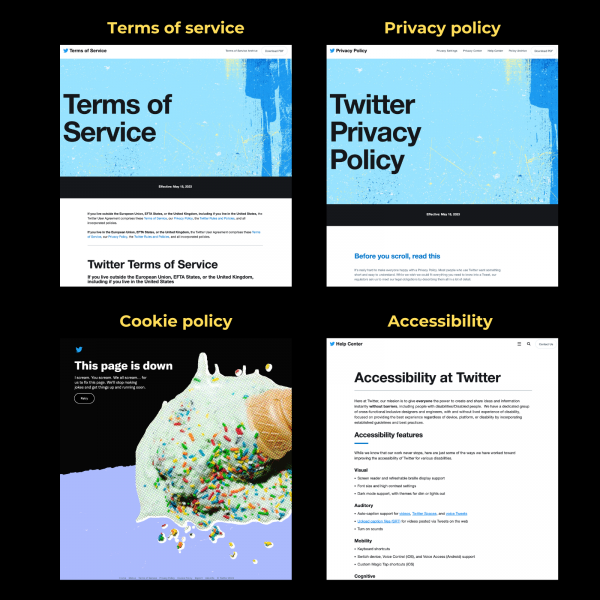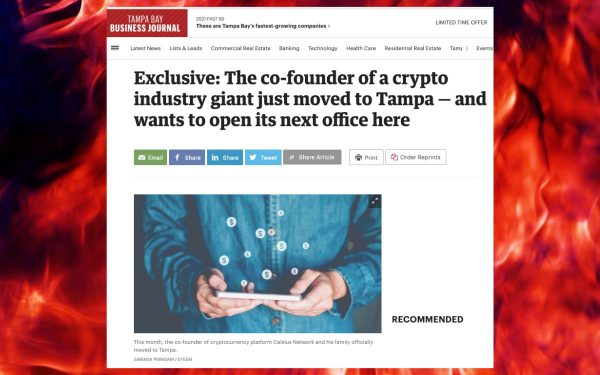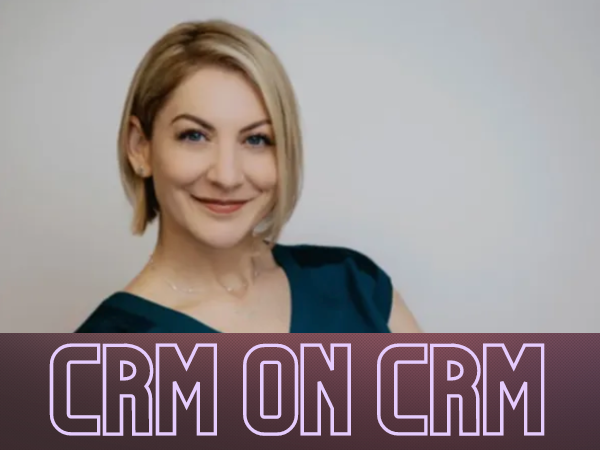This is the latest from Pizza Cake Comics, created by Ellen Woodbury. Click the comic or this link to see it on its originating page.
Category: Business
A sloppy rebranding
As I write this — 11:10 p.m. on the evening of Tuesday, July 25, 2023 — more than a day since Twitter ditched the bird icon and name for X. The problem is that the rebranding wasn’t terribly thorough.
Consider this screenshot from my Twitter/X home page:
Also, if you click on the links at the bottom right of the home page, the pages they lead to still bear the Twitter bird and name:
The newly-renamed corporation had a crew to remove the old Twitter sign from its San Francisco headquarters, but the police were called in and stopped it since the company never contacted the building owners about it, nor did they get a permit to set up the sign removal equipment on the street:
When the Twitter headquarters in San Francisco, California changed the name of the sign, it was stopped by the police due to failure to notify security or building owners. pic.twitter.com/3EzxsO73YK— Akin💯 (@ics923) July 25, 2023
At last report, the sign on Twitter HQ looks like this:
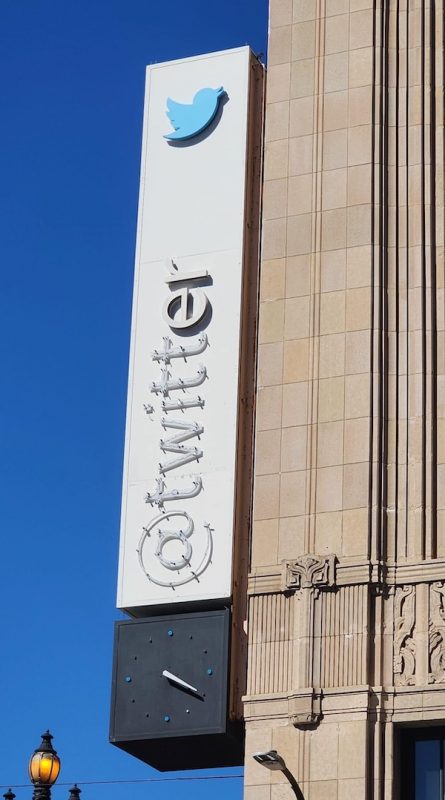
These are the kinds of mistakes that a marketing or brand manager would never make, because they know that rebranding is something that requires a plan.
But there is no plan. There’s a goal — ditching the Twitter name and replacing it with Musk’s beloved brand, X — and there’s PANTS.
Pantsing and paving the cowpath

“Planner” and “pantser” are terms that many novel writers use to describe two very different writing styles:
- Planners have their novel outlined and planned out before they start writing it. They’ve got clear ideas of the story they’re trying to tell, and their characters and settings are fleshed out.
- Pansters — the term comes from the expression “by the seta of one’s pants,” which means by instinct and without much planning — might have a vague idea of what they want to write about and are simply making it up as they write.
Both are legitimate ways of creating things, although a planner will tell you that planning is better, and a pantster will do the same for pantsing.
As an organization, Twitter has been a pantser from its inception. Most of the features that we consider to be part of the platform didn’t originate with them; they were things that the users did that Twitter “featurized.”
Consider the hashtag — that’s not a Twitter creation, but the invention of Chris Messina, whom I happen to know from my days as a techie in Toronto and the early days of BarCamp:
Retweets? The term and the concept were invented by users. We used to put “RT” at the start of any tweet of someone else that we were re-posting to indicate that we were quoting another user. Twitter saw this behavior and turned it into. feature.
The same goes for threads (not the app, but conversational threads). To get around the original 144-character limit, users would make posts that spanned many tweets, using conventions like “/n” where n was a “page number.” Twitter productized this.
All these features were a good application of “pantsing” — being observant of user behavior and improvising around it. This approach is sometimes called “paving the cowpath.”

If you do a web search using the term paving the cowpath ux (where UX means user experience), the results tend to be articles that say it’s a good idea, because you’ll often find that users will find ways around your design if it doesn’t suit their needs, as shown in the photo above.
However, if you do a search using the term paving the cowpath business, the articles take a decidedly negative slant and recommend that you don’t do that. User behavior and business processes are pretty different domains, and business processes do benefit from having a plan. As a business, Twitter had no plan, which is why they’ve always been in financial trouble despite being wildly successful in terms of user base and popularity.
To paraphrase Mark Zuckerberg’s observation about Twitter, it’s a clown car that somehow drove into a gold mine.
Pantsing as a process
Since Elon Musk’s takeover, Twitter has been pantsing at never-before-seen levels, largely based on Musk’s whims. We’ve seen:
- The firing-then-rehiring fiasco
- The mess that he made out of blue checkmarks
- Making it welcoming to neo-Nazis, white nationalists, and terrible people, which led to a mass exodus of advertisers
- Rate limiting and limiting viewing to logged-in users, reducing its readership
And the company’s been losing developers for reasons that started with cost-cutting, but soon, people were losing their jobs for contradicting the boss. Working for Musk is like working for Marvel Comics supervillain Dr. Doom:

More on Musk
If you’d like to hear more about Twitter and Musk, including three theories on why Musk has descended into madness — I’m particularly intrigued by theories #2 (ketamine, a.k.a “Special K,”, a.k.a. horse tranquilizers) and #3 (simulation theory) — check out the latest episode of the Search Engine podcast, hosted by Reply All’s former host PJ Vogt, What’s Going on with Elon Musk?
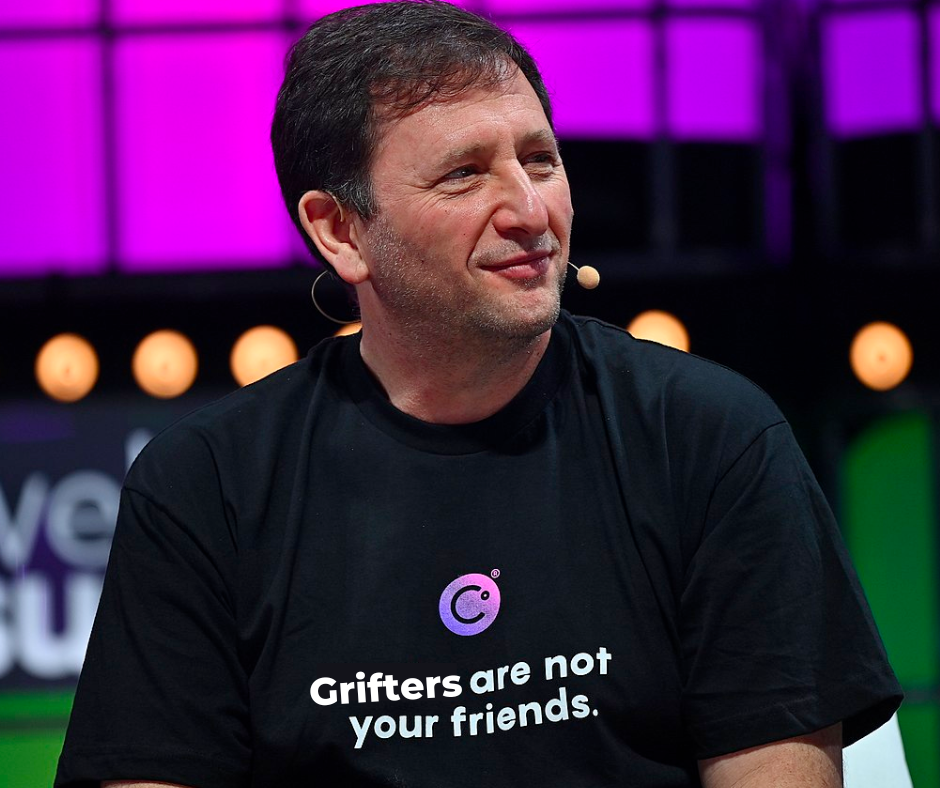
(The original Celsius t-shirt said “Banks are not your friends.”

It’s the top story on Techmeme right now: Celsius Network’s disgraced former CEO Alex Mashinsky has been arrested and charged with seven criminal counts including securities, commodities, and wire fraud. If convicted, Mashinsky could spend decades in prison. And as a former customer, I say: good.
Celsius, if you’re not familiar with it, was a cryptocurrency exchange that purported to operate like a bank, but better — starting with 1980s-style interest rates on crypto that you stored with them — until their business, which proved to be a Ponzi scheme, collapsed in 2022.
In June 2022, they filed for bankruptcy, but not before pausing withdrawals after its C-level people made big withdrawals themselves. It had been facing federal investigations, and during this process, they leaked half a million users’ holdings info via a data dump of its customers and their holdings.
The Tampa Bay connection
There’s a Tampa Bay connection in the Celsius scandal: co-founder and former CTO Nuke Goldstein, who moved here in 2021 amid a lot of fanfare from local press including these two funny/sad-in-retrospect pieces from Tampa Bay Business Journal:
- Exclusive: The co-founder of a crypto industry giant just moved to Tampa — and wants to open its next office here
- 25 People to Watch in 2022: Nuke Goldstein
And let’s not forget how much love Celsius got at the 2021 edition of the Florida Bitcoin and Blockchain Summit, which featured a sold-out party where you could hang out with Goldstein. For more, see my article, If you’re going to Florida Bitcoin and Blockchain Summit 2022, YOU’RE AN IDIOT.
Goldstein’s name hasn’t appeared in any news items about Mashinsky’s arrest, but the smart play for him would be to distance himself from Celsius as much as possible. And he’s taking an approach used by many other shady crypto/Web3 carpetbaggers…

If you look at Goldstein’s Twitter feed, it’s all AI now. In fact, his insterest in AI is such that he joined a meetup I organize:
That’s right — he signed up. As organizer, I see who joined, and when.
I thought about revoking his membership, but you know what would be more entertaining? If he actually showed up to a meetup, just so we could have a little impromptu Q&A session.


Her initials are CRM, and so are her topic’s initials! On Thursday morning at the Lowth Entrepreneurship Center at University of Tampa, Chaz Ross-Munro will talk about Leveraging CRM to Deliver an Experience Customers Love.
Chaz has forgotten more about customer relationship management (CRM) than most people will learn, so if you have an interest in CRM, don’t miss this one! Find out more and register here.

This event is part of the Lowth Entrepreneurship Center’s speaker series.

The speaker series takes place at the University of Tampa Lowth Entrepreneurship Center (820 W North A St., 8th Floor, Tampa, FL).
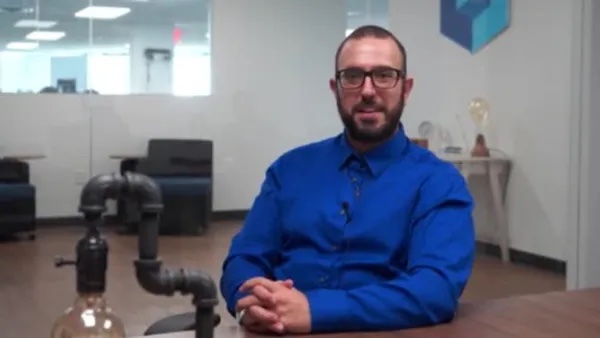
Tomorrow afternoon (Thursday, April 6th) at 4:00 p.m., catch the latest in a great speaker series at the University of Tampa’s Lowth Entrepreneurship Center! The presentation will be Building an Innovative Sales Playbook To Grow Your Business, featuring Sercan Topcu.
Sercan is an award-winning marketer, seasoned sales developer, and Forbes 30 under 30 winner. He empowers sales teams worldwide with his love for data-driven development and engineering analytical solutions for big problems as the Head of Managed Services at InsideOut Lab, overseeing the PlayOps team. Sercan helps market leaders and innovators, including Fortune 500 organizations, leverage scientific methodology and behavioral sciences to enable their sales/marketing people and strategies.
His clients establish higher returns on effort with their business development strategies through Sales Play. A Sales Play is an outbound series of sales activities designed to turn a prospect into a genuine selling opportunity.
Topcu is the head of managed services at InsideOut Lab. He oversees the PlayOps team, which helps clients establish higher return on effort with their business development strategies through a “sales play.” According to Topcu, “a sales play is an outbound series of sales activities, designed to turn a prospect into a genuine selling opportunity. “Think of it like a plan of attack, targeting prospective buyers in a direct, structured way, leveraging sales enablement resources, strategies, KPIs, tonality, buyer personas and ideal customer profiles. For inbound calls or buyer enquiries, we create Sales Motions. These are a perfectly balanced series of conversational activities, designed to increase inbound conversions and customer satisfaction rates for rich, memorable and engaging interactions. Our deliverables are established by consulting on: benchmarking; tech-stack utilization and automation; sales operations optimization; improved buyer engagement strategy development; improved call/email/social/video messaging and personalization; strategy and messaging performance; health checks; sales campaign installations to sales platforms; training teams on-site or virtually to increase their confidence in utilizing their new sales plays with target buyers.”
Sercan was the Co-founder of Tembo Education and responsible for developing, managing, and executing traditional and new-age marketing/branding strategies. He was in charge of email, content, affiliate marketing, and re-targeting. Recruit/manage the micro-entrepreneurs network and marketing team personnel. Tembo educates 0-6-year-old children worldwide via Harvard/Lego Foundation/Pearson-backed curriculum text messages. The 15-min activity is sent to parents each weekday via text message. Parents perform the activity with their children in their own homes. Parents answer a quiz to earn rewards for educating their children.
This event is FREE to the public! Find out more and register here.

This event is part of the Lowth Entrepreneurship Center’s speaker series. Upcoming events include:
- Thursday, April 20: Greg Ross-Munro on What it Takes to Build Successful Startups & Great Software
- Thursday, April 27: Leveraging CRM to Deliver an Experience Customers Love with Chaz Ross-Munro

The speaker series takes place at the University of Tampa Lowth Entrepreneurship Center (820 W North A St., 8th Floor, Tampa, FL).
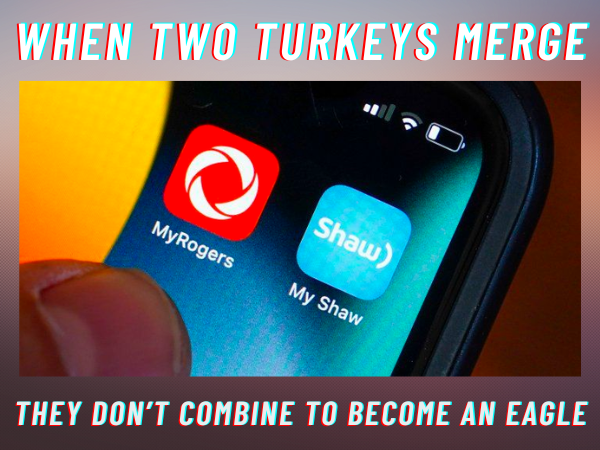
Need context? Here’s a news story from Canada’s Global News.
